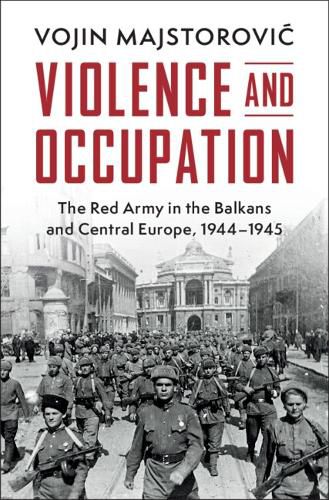Readings Newsletter
Become a Readings Member to make your shopping experience even easier.
Sign in or sign up for free!
You’re not far away from qualifying for FREE standard shipping within Australia
You’ve qualified for FREE standard shipping within Australia
The cart is loading…






This ground-breaking history traces the Red Army's advances across Central Europe and the Balkans in 1944-1945. It focuses on the 2nd and 3rd Ukrainian Fronts, which occupied Romania, Bulgaria, Yugoslavia, Hungary, and Austria. Utilizing material from archives across Russia, Ukraine and Serbia, alongside diaries, memoirs, and interviews, Vojin Majstorivic examines the official policies and troops' behaviour in each country and uncovers a litany of military violations, from deserting and looting to widespread sexual violence. His findings show that the Red Army was an ill-disciplined force, but that military personnel committed fewer crimes against civilians in 'neutral Bulgaria' and 'friendly' Yugoslavia than in "enemy" Romania, Hungary, and Austria. To explain the variation in troops' conduct, he stresses the interaction of several continuously evolving factors: Kremlin's policies, the severity of the fighting, the command's policies towards criminals, the official propaganda, and troops' martial masculinity, identity, and views of the local populations.
$9.00 standard shipping within Australia
FREE standard shipping within Australia for orders over $100.00
Express & International shipping calculated at checkout
This ground-breaking history traces the Red Army's advances across Central Europe and the Balkans in 1944-1945. It focuses on the 2nd and 3rd Ukrainian Fronts, which occupied Romania, Bulgaria, Yugoslavia, Hungary, and Austria. Utilizing material from archives across Russia, Ukraine and Serbia, alongside diaries, memoirs, and interviews, Vojin Majstorivic examines the official policies and troops' behaviour in each country and uncovers a litany of military violations, from deserting and looting to widespread sexual violence. His findings show that the Red Army was an ill-disciplined force, but that military personnel committed fewer crimes against civilians in 'neutral Bulgaria' and 'friendly' Yugoslavia than in "enemy" Romania, Hungary, and Austria. To explain the variation in troops' conduct, he stresses the interaction of several continuously evolving factors: Kremlin's policies, the severity of the fighting, the command's policies towards criminals, the official propaganda, and troops' martial masculinity, identity, and views of the local populations.